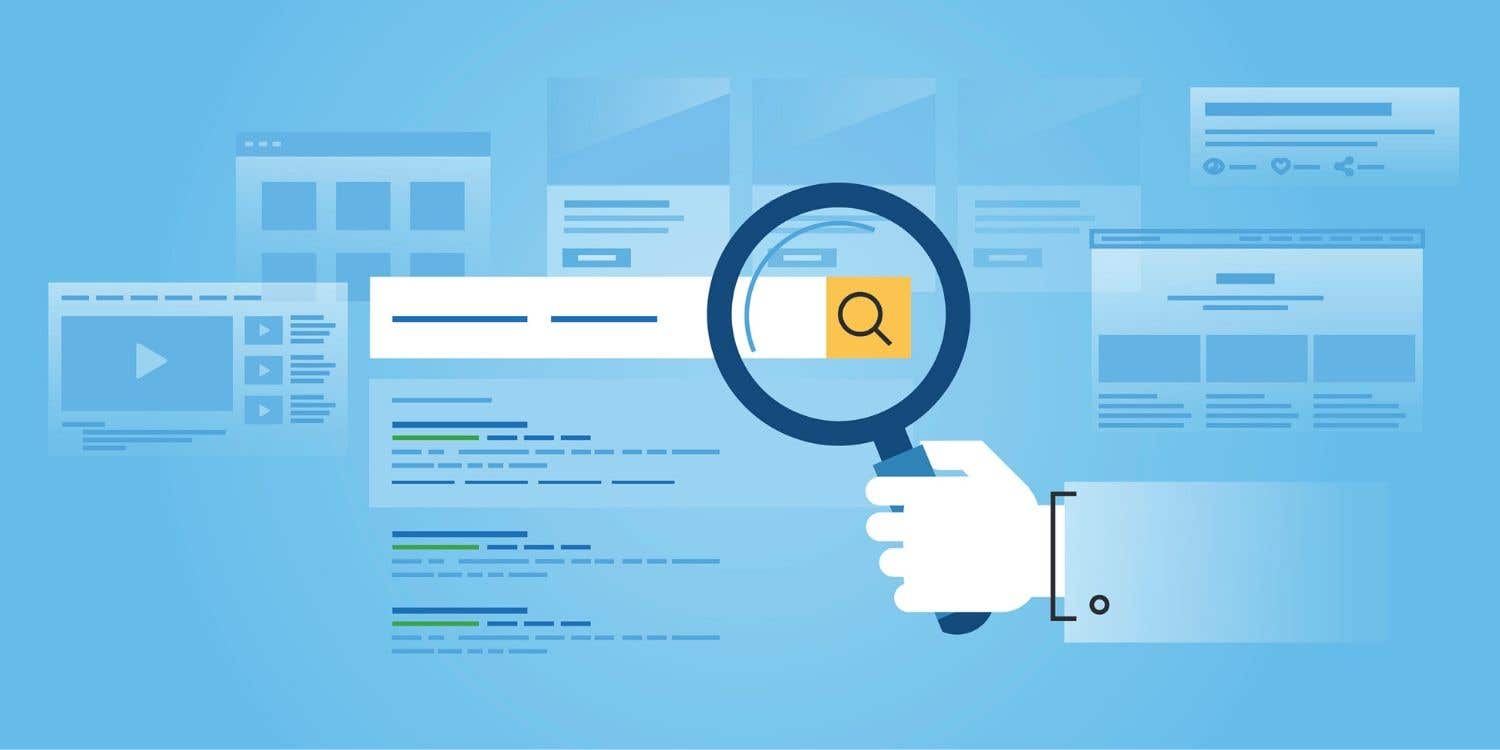Chat with Ava - Your AI Business Consultant
Hi I'm Ava, your AI guide to supercharging your business!
Whether you're already running a business or dreaming of starting one, I'm here to help turn your vision into reality using AI powered freelancers. Share your business goals, and together, we'll create a project that our talented freelancers can bid on. Let's make your vision a reality!
I have a business
I'm starting a business
Something went wrong while sending the conversation to your email. Please try again later.
You can only save your conversation once per hour. Please try again later.
Your conversation is too short. Keep chatting with Ava to enable saving.
Getting software upgraded on your website
It's important to keep all the software on your website updated to protect yourself from cyber attacks. In this post we show you how to do it right.
Apr 8, 2020 • 11 minute read

(M.A)Content developer, Academic writer, Experienced blogger, Press release specialist, WordPress ex
Copy to clipboard failed, please try again after adjusting your permissions.
Copied to clipboard.

Before upgrading your website's software read this.
Technology is ever-evolving in our world today, and so too is the need for increased security. Now that you're created a business and crafted a website to support it, it's vital to protect all of the hard work, time and money you've invested. It's time to upgrade your website security, and that has everything to do with updating your software.
Website hacking is common these days, and there are a lot of things that can be done to increase the security of your website on a basic level. The first step is to make sure all software is up to date. If your site contains more complicated plugins and applications, and more sophisticated software, it's even more crucial to do so. We’ll describe this in a little more detail further below.
100% security is an impossible promise to make, but following key guidelines will get you as close as you can be. Performing a regular backup of the entire site is another key part of the process. If something were to happen and as a result, the site goes down, the absence of a recent backup will instantly double the workload needed to make your site live again. A backup needs to be performed not just on the core site, but all the minor components (such as plugins) that interact to make up the website as a whole.
Much of the time, security is not part of the development process. In these cases, if security tests are performed at all, they occur just before the production phase of the project. The development moves on to CI/CD, leaving a gap where security is concerned. The application has no time to adjust and run and as a result, is vulnerable. It's important not to rush the security implementation phase, and whenever possible, to integrate it earlier on in the development process.
Different Types of Security Software That Need Upgrading
For a while, there was a myth floating around that Mac users didn’t need to worry about malware attacks. This is completely untrue. Both Mac and Windows users should be equally prepared to deal with malware and any other security threat that exists in cyberspace. They may require different security software, but essentially they will all be doing the same thing, and that’s safeguarding your network.
Some common security software brands that are tested and reliable for Mac users are MacScan3, Mac Booster, Mac Premium Bundle X9, and Avast Free Mac Security. For Windows, some of the best security software brands include BitDefender, Cyber Security Pro, Malware Bytes, Avira, Avast, and Hotspot Shield VP. Several of these brands are also available in Mac versions. As you can see, there are a lot of excellent security software brands to choose from. This leaves us with no excuse for leaving any computer unprotected!
The Latest Trends in Cyber Crime for Businesses
When it comes to security breaches for businesses, there are a few concerning trends to be aware of. We’ve listed the three primary ones below.
IoT
One is the proliferation of IoT. IoT (the Internet of things) is referring to the system of computing devices (digital and mechanical) that are interrelated throughout a system. They have the ability to transfer data over the network without human interaction. IoT is more prolific than ever before, and this presents a challenge because whenever more technology is added to the network, more security risks are potentially introduced. Aside from the traditional network components such as a group of computers, cellphones, and a printer, IoT now includes many things such as plugs, stereos, speakers, and lights. In order to use IoT responsibly, as a minimum you should change the default passwords on each component when connecting it to your system. Also, be sure that the firmware is up to date, and schedule regular updates.
Below is a graphic sequence illustrating how IoT is placing more of a demand on cyber security. Read more at metacompliance.com for an in-depth understanding. Though the images lean toward home networks, they are applicable to any shared network, including businesses.![https://localhost/wordpress/wp-content/uploads/2019/08/2-3-700x350.png]()
![https://localhost/wordpress/wp-content/uploads/2019/08/2-3-700x350.png]()
Two-Factor Authentication
You've probably seen this before. You go to a website and put in a password, and then you receive a code by text message. That code lasts for a minute or so before it expires. This type of security mechanism is designed to prevent hackers who may have somehow acquired your password from accessing the site without the second code. It's not 100% bulletproof, but it significantly increases the chance that you will not be breached through one-year logins. Two-factor authentication can be a very useful measure under the right circumstances.
Cyber attackers are getting a lot better at what they do. They know that there’s a lot of money in hacking, and this is very motivating. In the past, only highly intelligent coders could achieve a hacker status, but that’s changed. Now, essentially anyone can buy tools and information on how to build ransomware, for example. According to this concerning article from Comparitech , there were 144.91 million new malware samples in 2019 and in 2020 there are already 38.48 million new documented samples.
Social Engineering
Social engineering is another hot trend right now amongst hacker groups. This is known as phishing, and it occurs when someone within the network receives a seemingly trustworthy email that tricks them into giving away some key piece of information that hackers then use to breach the network. Make sure that everyone within your business (or family, for that matter), is aware of what phishing is so they know what red flags to look for. There are tons of free resources on the web that can instruct you in how to avoid phishing scams. This will really help to tighten up security for your website.
For those of you who prefer a visual representation to understand just how large a threat cyber-crime poses, here’s a graph. The statistics here are slightly more dated than what is quoted above, but it’s a great reminder of the importance of our discussion.

How to Upgrade Your Website Security
What can you do to avoid being hacked?
Well, there are several steps you can take. For starters, remember to always create complex passwords that are hard to guess, and change the default admin logins. Reusing old passwords is not a good idea, because they've been stored somewhere. Longer passwords with combinations of upper and lower case letters, numbers, and symbols make them very hard to guess. When you get a new modem, router, or website, be sure to change the generic "admin" login to increase access security right away. These may seem like basic steps but they get you off to a more secure start for your network.
Next, be sure to change the default name of your network. This simple step sends a signal to hackers that you've also most likely changed your password, so your website doesn't appear to be low-hanging cyber fruit ready for the picking.
Another important step is to make sure you’re not broadcasting your SSI. This simply involves making sure your network won’t show up in the list of WiFi that you can choose from a mobile phone, for example. It will still be available, of course, but users will have to manually enter it themselves. By default, WiFi routers broadcast your SSI regularly. This means that the signal can be seen by anyone with an open device looking for a connection. Originally, this feature was designed for businesses where customers might frequently roam in and out of network range, but when your SSI is broadcast it just makes it easier for hackers to find your network and break-in. This feature can be accessed and changed from your router access panel.
Using a VPN (virtual private network) is another way to boost security. A VPN is a paid service that sends all of your traffic through a proxy server instead of straight to your wireless network. This ensures that your traffic and data is encrypted. Remember to enable the option “always use HTTPS” to keep your login details encrypted, and turn off file sharing.
Antivirus software not only needs to run at frequent intervals, but it needs to be updated regularly. Make sure that you have the latest virus definitions to identify any new emerging malware and attack schemes that are out there. This is not just for computers, but also for mobile devices on the network. Most computers come with default antivirus software. You’ll need to ensure that it’s running active protection at all times plus regularly timed scans.
Lastly, never underestimate the power of regular backups. It's best to automate the process so you don't even have to think about it, yet you know it's happening often. Set up backups in a safe, reliable location and test them to make sure they're working properly. At the end of the day, all the hard work you’ve put into your website will still be there if you sustain a security breach.
Updating WordPress Plugins
A focus on updating all the plugins and other auxiliary software is an excellent way to enhance your site’s security, but sometimes it can lead to unexpected consequences. For example, it’s not uncommon for a website to not respond correctly after plugins are updated.
Let’s use WordPress as an example. As one of the most commonly used content management systems on the web, WordPress powers a gigantic number of business sites and ecommerce stores. It's highly likely that you're already using it.
WordPress plugins need to be updated to maintain security. The platform releases updates often to patch any potential security holes. If you want to keep your site safe from bugs, hacks, and other vulnerabilities you must continually update. Implementing the habit will have the added benefit of regularly improving the speed and functionality of the site, as these improvements are also built into each update.
Modern plug-ins that you might be using on your site need to be compatible with the latest technology, and most require the newest version of WordPress to function correctly.
Continuing on with WordPress as our example, let’s look at the basic steps you’d need to take to safely complete a full-scale security update of your site.
Automate your backup
Install a WordPress plugin that puts backup on autopilot. Your files, database, plugins, uploads, and themes will be automatically backed up and available if the need arises
Disable caching
Caching affects the way the website works at the backend and can negatively impact performance.
Make sure to turn off caching during the update.
Update plugins and themes
WordPress itself gets regular updates, but so do plugins. On the WordPress update page, you will find
the option of updating plugins and themes. Make sure to follow the instructions and also check that the
update completed successfully.
Update WordPress core
This simple procedure just involves pressing an “Update Now” button. It turns out updating the
WordPress core itself is actually the simplest step in the entire process! Once you’ve done so, your site
will be using the latest version.
Enable caching
You can now turn caching back on for your site.
Stage a Performance check
Do a test browse of the site. Scroll through pages and posts to get a general idea of the display and
functionality, just to see if anything unusual jumps out at you.
Back it all up again
Once you’ve completed the steps and done a test-drive, this important updated version needs to be backed up again.
Stage a Test Site
An often overlooked but extremely important aspect of the entire update process is to stage a test site. Website staging is the process of creating a clone of your WordPress site that you can log into for testing purposes. This allows you to test out all of the new updates and changes that have been made against a mock of the site to make sure everything responds as it should. For example, sometimes plugins may misbehave after an update. You can troubleshoot any issues you’re having here and deal with problems without affecting your live website. If you’re interested in doing it yourself, you can have a look here and here for guidance through the process. These sources can help you learn to completely update your site and test it in staging to ensure that all the new changes add up.
Upgrading marketing software
Marketing software is another area that needs updating on a regular basis. Below is a list of some of the best marketing software available for your business website. When searching for the best marketing brands for your site, always consider software that integrates directly into the website. This includes important features such as SEO plugins, pop up forms, UX optimization tools, CTA button animators, etc. The choices below are all excellent choices that integrate all of the above criteria, but remember, they’re only as safe as their latest update!
Marketo is one of the leading brands in market automation. It eases the launching process for your site and covers everything from automating inbound marketing to sales management and social media marketing. Its capabilities don’t end there! Marketo can even provide account insights, ads, SEO plugins, and much more. It’s a workhorse for your business website.
Vocus is a cloud-based software that has risen to top-level status in its category. Vocus is often chosen by companies for the comprehensive suite of tools it provides. These tools are designed to enhance search, email, and social media marketing. They are like a virtual PR assistant!
Hubspot is esteemed for its creative personalization options. Its innovative interface provides a refreshing alternative to common marketing strategies that users tend to find tiresome. Hubspot’s marketing apps include marketing analytics, social media, lead management and blogging tools.
Hiring an expert to upgrade your website software
The process of backing up your website can seem daunting, especially if you're strapped for time. In general, you'll get faster and the process will become second nature if you're doing it regularly, as you should. However, hiring a person to do the job for you is also a great idea, especially if doing so ensures that a thorough backup will be regularly executed.
Experts know the finer details of the process and are getting paid to spend the time securing your site. An expert will perform a thorough check of all aspects and reduce that chance that anything gets overlooked. They know how to avoid common pitfalls that sometimes occur during the process and are skilled at troubleshooting.
Be mindful that sometimes a website's performance is negatively impacted after an update. For example, plugin updates can sometimes cause problems. If hired, an expert can stage the site to test all new plugin updates before integrating them into the live site. The benefits of hiring an expert far outweigh the savings you might have doing it yourself. In many instances you might end up saving money too. It’s not necessarily more expensive to hire an expert. Without a doubt, having access to experts in the industry gives you access to the newest technologies and brightest minds in the field.
Make Security a Priority
Security is finally beginning to get the prioritization it deserves. Within the past couple of years, we 've seen larger enterprises make it a top priority. Mid-market companies followed the trend, and now smaller businesses are becoming aware and adopting better security practices as well. The realization that security is paramount, and not simply an IT matter is now widely understood. If the company is breached and privacy regulations are violated it can have a devastating effect. Major fines can ensue and the brand becomes damaged. Needless to say, every company, from micro-businesses to large firms should do whatever it takes to ensure that the privacy of its network and all of its customers is being respected.
One unfortunate trend is that small businesses are being targeted more now. This doesn't make the news as widely as a large corporation breach would, so you're not as likely to hear about these regular occurrences. However, the reality is that hackers know that small businesses do circulate money, resources, and data, and unfortunately often neglect security, giving hackers a way in. This makes small businesses a much easier target.
If you own, manage, or even just work at a company, no matter the size, it’s important to start talking about security. Devise a plan to deal with all possible breaches you think you might be vulnerable to and continually keep things up to date. Some of the best security software tools available right now are Sitelock , Rapid7 , and Sucuri .
Tell us what you need done
Enter your project name
Related Stories
Talk to one of our Technical Co-Pilots to help with your project
Recommended Articles Just for You

Learn the complete end-to-end process of building a successful website for your business in our comprehensive guide
19 min read

Struggling to come up with the best idea? Our exhaustive guide runs through the idea generation process to help you tap into your inner Steve Jobs.
10 min read

A complex math and science problem shouldn't stop you from growing your business. We show you how to solve your complex problems with freelancers.
6 min read

Search engine marketing can be a great advertising channel for your business, or a colossal waste of money. The difference lies in how it's executed.
8 min read
Thanks! We’ve emailed you a link to claim your free credit.
Something went wrong while sending your email. Please try again.
Loading preview
Permission granted for Geolocation.
Your login session has expired and you have been logged out. Please log in again.




